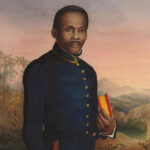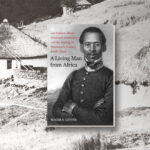Across various African cultures, particularly among the AmaXhosa of the Eastern Cape, numerous rituals associated with ancestral veneration were initially practical cultural practices born out of necessity rather than spiritual devotion. Over time, however, these customs have undergone significant transformation, resulting in their reinterpretation as religious rites centred on the veneration of ancestors.
Honouring the memory of the deceased is not inherently wrong.
This article examines this evolution, contrasts similar practices across different global cultures, and evaluates the biblical perspective on ancestral veneration, ultimately arguing that while honouring the memory of the deceased is not inherently wrong, worship and veneration belong exclusively to God.
Cultural Practices and the Evolution of Ancestral Veneration
Among the AmaXhosa, certain practices historically grounded in practicality have been reinterpreted within a spiritual framework.
Practices initially rooted in practicality become embedded within religious frameworks.
For example, when a man of the household passed away, two cows were traditionally slaughtered. Originally, this practice served a functional purpose: the cattle’s hide was used to cover the deceased in an era when blankets or caskets were unavailable. In contemporary times, however, this practice has been reinterpreted as a ritual which ensures the deceased joins the world of the ancestors, where they are believed to return as “living ancestors” who offer protection and serve as mediators between the physical and spiritual realms.
This evolution of cultural customs into spiritual practices demonstrates a broader pattern in human societies, wherein practices initially rooted in practicality become embedded within religious frameworks. This phenomenon is not unique to Africa but can be observed in various cultures worldwide.
Ancestral Veneration in Global Context
The belief in a continued relationship between the living and the dead is not exclusive to African cultures. For example, notes Simek, the Vikings believed in the existence of spirits known as draugr—undead beings who could haunt the living. Offerings were made to deceased ancestors to seek blessings and protection. Similarly, in many Asian traditions, honouring the deceased is a deeply ingrained practice. In Confucianism, Taoism, and Buddhism, rituals such as the Qingming Festival (Tomb-Sweeping Day) and the Ghost Festival in East Asia involve offerings of food, incense, and prayers to ancestors, reflecting a belief in their continued influence over the living.
Belief in a continued relationship between the living and the dead isn’t exclusive to African cultures.
Given this global perspective, it is evident that the human inclination toward ancestral veneration stems from a universal existential curiosity about death and the afterlife. The uncertainty surrounding what happens after death, combined with the deep emotional bonds shared with the deceased, often compels individuals to seek ongoing connections with their ancestors. However, from a biblical standpoint, such practices raise significant theological concerns.
The Biblical Perspective on Ancestral Veneration
From a Christian theological perspective, worship and veneration belong solely to God. The Bible explicitly warns against seeking guidance, blessings, or protection from the dead.
Worship Belongs to God Alone
Worship is to be directed toward God alone.
The scriptures consistently affirm that worship is to be directed toward God alone. Exodus 20:3-5 states, “You shall have no other gods before me. You shall not make for yourself an image in the form of anything in heaven above, on the earth beneath, or in the waters below. You shall not bow down to them or worship them.” Deuteronomy 6:13-14 similarly commands, “Fear the Lord your God, serve him only and take your oaths in his name. Do not follow other gods, the gods of the peoples around you.”
These passages underscore that veneration, if it assumes the form of worship or prayer, directly conflicts with the exclusive reverence that God demands.
The Dead Cannot Mediate Between God and Humanity
Christian doctrine affirms that Jesus Christ is the sole mediator between God and humankind. 1 Timothy 2:5 states, “There is one God and one mediator between God and mankind, the man Christ Jesus.”
Hebrews 9:27 declares, “Just as people are destined to die once, and after that to face judgment.” This suggests that the dead do not maintain an active role in the lives of the living. The idea of ancestors acting as intermediaries contradicts biblical teaching, which affirms that salvation and divine guidance come through Christ alone.
Necromancy and Consulting the Dead is Forbidden
Scripture explicitly condemns any form of communication with or invocation of the dead.
Biblical texts explicitly condemn any form of communication with or invocation of the dead. Leviticus 19:31 warns, “Do not turn to mediums or seek out spiritists, for you will be defiled by them. I am the Lord your God.” Deuteronomy 18:10-12 further declares, “Let no one be found among you who…practices divination or sorcery, interprets omens, engages in witchcraft, or casts spells, or who is a medium or spiritist or who consults the dead. Anyone who does these things is detestable to the Lord.”
These verses indicate that seeking power, knowledge, or protection from the dead is contrary to biblical principles, as such practices are linked to occultism and pagan worship.
Honor Versus Worship: A Theological Distinction
While Christianity calls for honouring parents and elders, this does not extend to veneration or seeking a spiritual connection with them after death. So Ephesians 6:2 states, “Honour your father and mother,” which is the first commandment with a promise.
Honouring the memory of deceased loved ones through storytelling and biographies and preserving their legacies aligns with biblical principles. However, elevating them to divine or mediatory status conflicts with Christian doctrine.
Ancestral Spirits and Spiritual Deception
A critical distinction must be made between remembering the dead and spiritual deception. While ancestors themselves are not inherently demonic, biblical theology warns against Satan’s ability to deceive (John 8:44). The Bible describes Satan as the “father of lies,” seeking to mislead humanity by distorting truth (2 Corinthians 11:14). As a master of deception, Satan may manipulate the human inclination toward ancestral veneration to draw people away from God, potentially using spiritual manifestations that look or sound like our family members to mislead believers.
Honour Them Without Depending on Them
Honouring the memory of ancestors, such as preserving their stories and celebrating their contributions, is not inherently sinful. However, worshipping, venerating, or seeking help from the deceased contradicts biblical teaching, which affirms that only God is worthy of worship and that Christ alone serves as the mediator between humanity and God. Christianity thus calls believers to rely on God for guidance, provision, and salvation while rejecting practices that elevate the dead to divine or mediatory status.
Only God is worthy of worship and Christ mediates between humanity and God.
Ultimately, a biblical worldview affirms that remembrance of ancestors should be rooted in historical and familial appreciation rather than spiritual dependence or veneration.












